Plenty of silage is being made in Waikato and most crops are in the ground. Farmers in Otago are busy marking lambs and bulls are going out to the cows.
Northland welcomed a little bit of rain through November causing the grass to take off and bumping up farmers' spirits. Positivity is waning, though, with schedules on both beef and lamb dropping and farmers are bracing themselves ... will the summer bring a drought or another tropical cyclone?
Changeable weather has prevailed in Pukekohe. Some rain on and off has kept crops growing but irrigators have been on especially where crops have been exposed to the wind. Potatoes and early onions are being harvested with strong demand from the local and Pacific Island markets. The same can't be said for broccoli and lettuce which are abundantly available at very low prices. At this stage, it is too early to predict prices for Christmas but our contact says there could be some bargains.
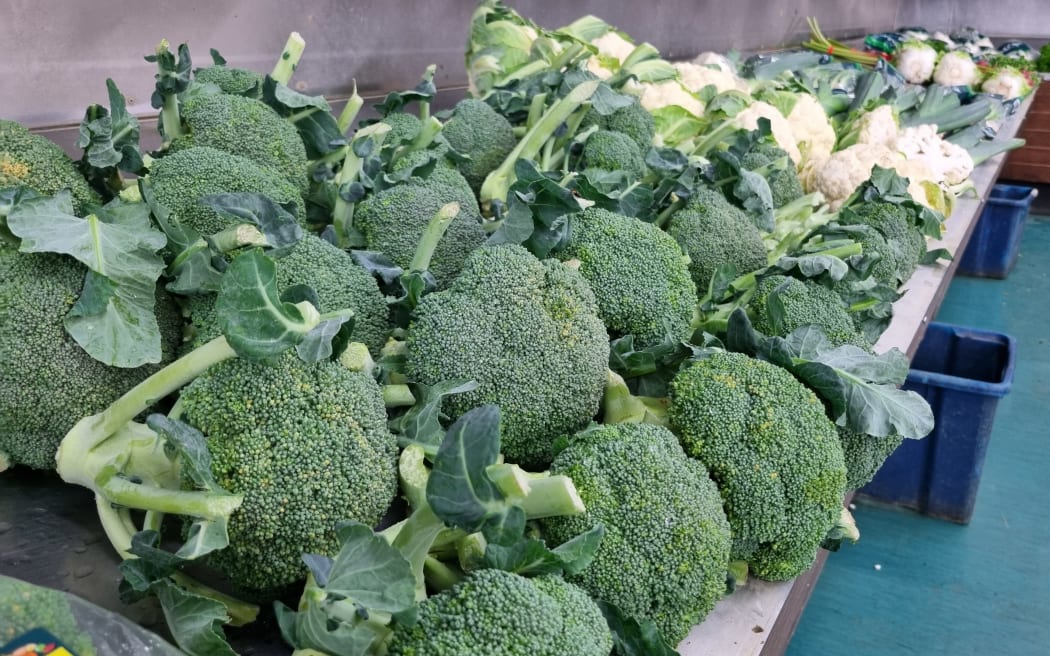
Photo: RNZ / Tom Taylor
It's been a mixed month in Waikato. On balance there has been a reasonable amount of rain and all the crops are generally in the ground. Plenty of silage is being made, although most are behind on production due to the wet spring. Contractors have been working until 3am to get the job done. Mating has also gone well with submission rates better than last year. And there's been a spike in morale due to the change in government, we're told.
Bay of Plenty has seen some friendly weather throughout November. Consistent, yet light rain has grown a tonne of grass. One thing that needs managing is pasture going to seed - a reproductive state that doesn't provide much in the way of nutrients for livestock. The Rotorua A and P show is on this weekend .... on Saturday ... this is the new date for the show ... it's been brought forward a couple of months because of a lack of sheep and clashes with other events later in the summer. They need plenty of sheep for the shearing competitions.
It's starting to warm up in King Country. Farmers are reporting cooler westerly winds and on the whole, nice bits of rain. Cattle are doing nicely, however, lambs are a bit behind due to a lack of sunshine. Our contact says it could be better, but it could also be a hell of a lot worse. With Christmas creeping closer farmers are hoping to get some reprieve from the year, but not before another busy two or three weeks weaning and drenching lambs.
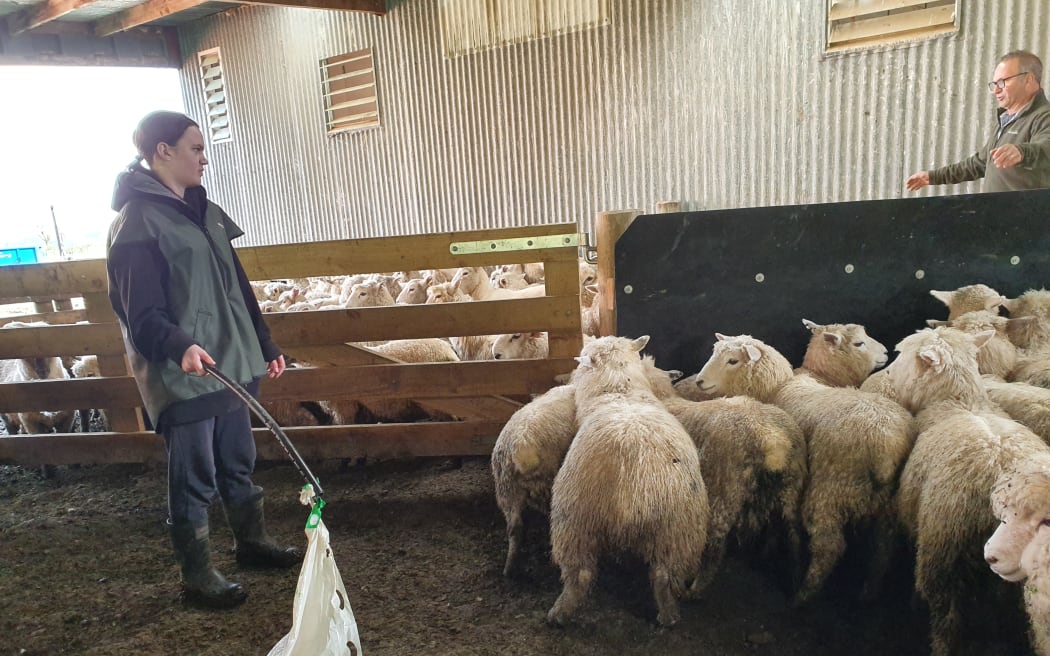
Olivia Amber moving the sheep through for drenching Photo:
It's been a funny old month in Taranaki. The north of the region has had too much rain and not enough sunshine. Milk production has suffered because of the weather and the time of the year. In the south and closer to the coast, it's a different story. The area is below average, so any rain at this stage is good. Pastures are looking a bit yucky and have gone to seed too quickly. Farmers are glad to be saying goodbye to November.
To Te Tairawhiti now, where the month started off alright. But a huge amount of rain last weekend upset things again. Three hundred millimetres of rain fell in some parts of the region drowning crops, bringing forestry slash back down again and damaging access. It's the third time some have tried to sow their maize. Due to the low sunshine hours, lambs aren't doing so well and weaning weights are nowhere near where they would normally be. Farmers are now asking the sky for a month of sunshine.
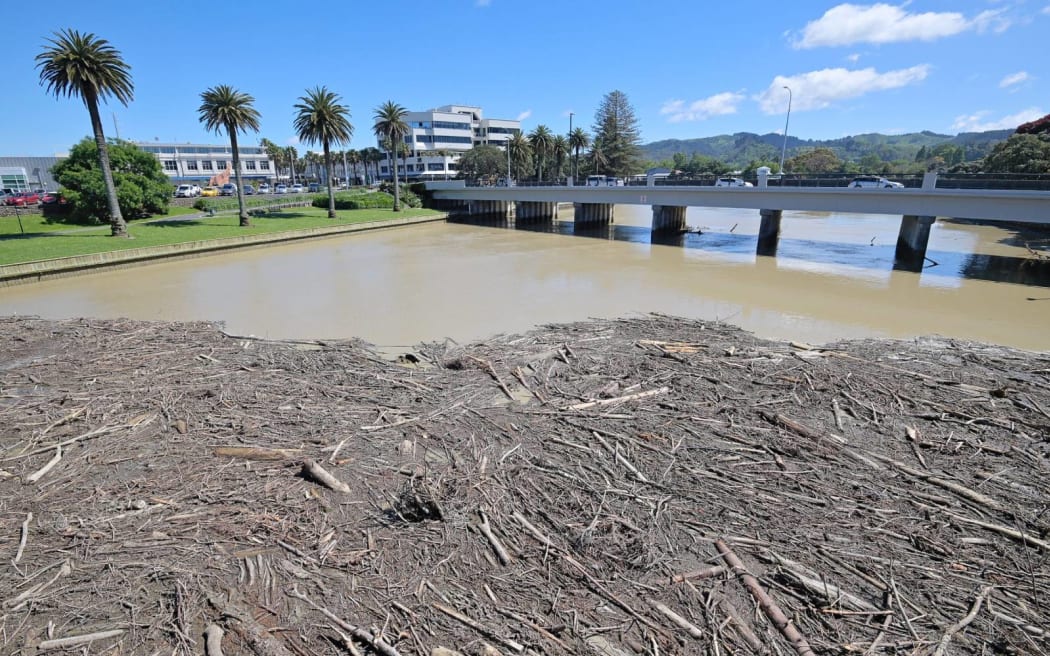
Debris piling up in local rivers, like this mass after last weekend's rain, is an issue Alder wants the council to address with more urgency. Photo: Liam Clayton / Gisborne Herald
Hawkes Bay has been wet, surprising many who were looking forward to the forecast El Nino weather pattern. It's been a month of typical spring conditions, some days being nice and warm and the next a bit gloomy. However, consultants are reminding farmers the region could still be seriously dry by the beginning of autumn
An olive grower in Wairarapa is feeling positive about the season ahead as buds have started breaking on the trees and even flowering in some parts. This promises a good fruit set come the end of summer. There's been some rain and cold blasts, making it hard to get outside and spray for disease during the flowering period. Our grower is also holding out for kind 18-degree temperatures for good pollination. While there has been the odd day like that, it's been followed by a chilly 12 degrees - less than ideal.
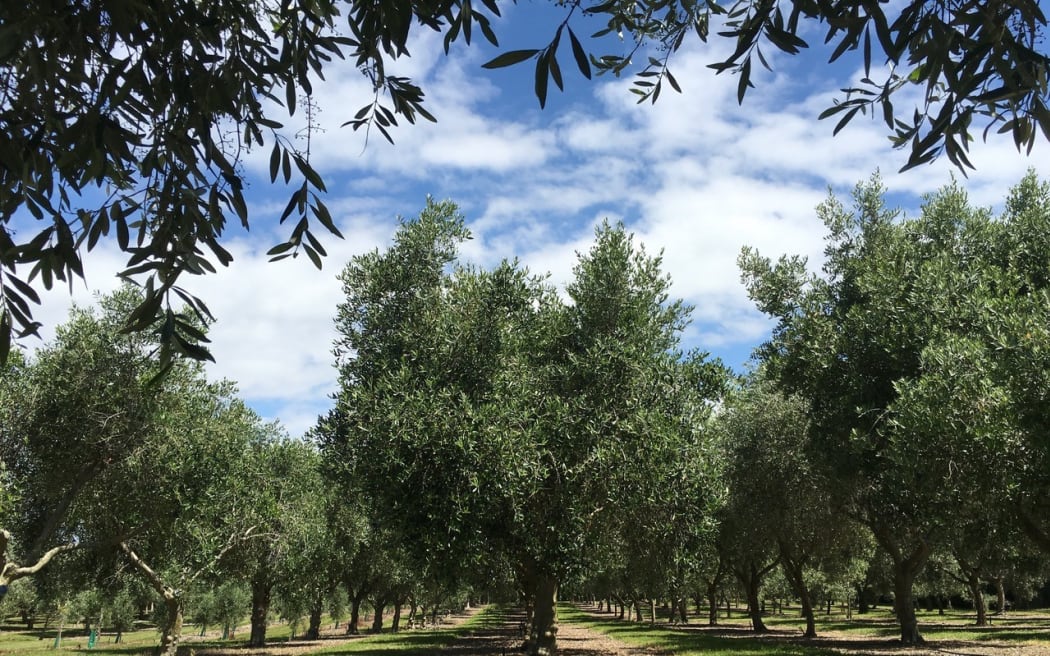
David Walshaw's olive grove Photo:
It's drier than normal, and even feels warmer than normal, in Nelson. That's been well received across the district. Growers are flat-out trying to irrigate, but the conditions have also enabled them to catch up on tasks throughout the month. Hayward kiwifruit is at the end of flowering - a few days behind recent years, but there is a strong sense the fruit set is good. Hand thinning of apples has started in the past week or so. Despite a reasonable fruit drop from the chemical thinners, there is still quite a bit of work to do, but thankfully, there are enough backpackers to keep up with demand.
The word on the ground in Marlborough is - it's very dry. Our contact had been driving across the South Island this week and has concluded, on looks, that Marlborough is drier than most. Grapes are going well thanks to the sunshine. Some mornings farmers have woken to snow on the mountains, though, but it would be hot again by the afternoon. Prime lambs are all gone and the last lot of cattle is scheduled to leave the farm gate next week. There's a sense the weather is back to normal - that is, less rain on the horizon. And it's getting many excited about dusting the boat off and having some time off farm.
Farmers on the West Coast have made it through the thick of the mating season with both submission and non-return rates looking good. There have been plenty of sunny days and a little bit of rain here and there. Milk production peaked for one farmer in the middle of the month, and now the grass is throwing up seed head more than leaf - but for the most part, stock has been fed well.
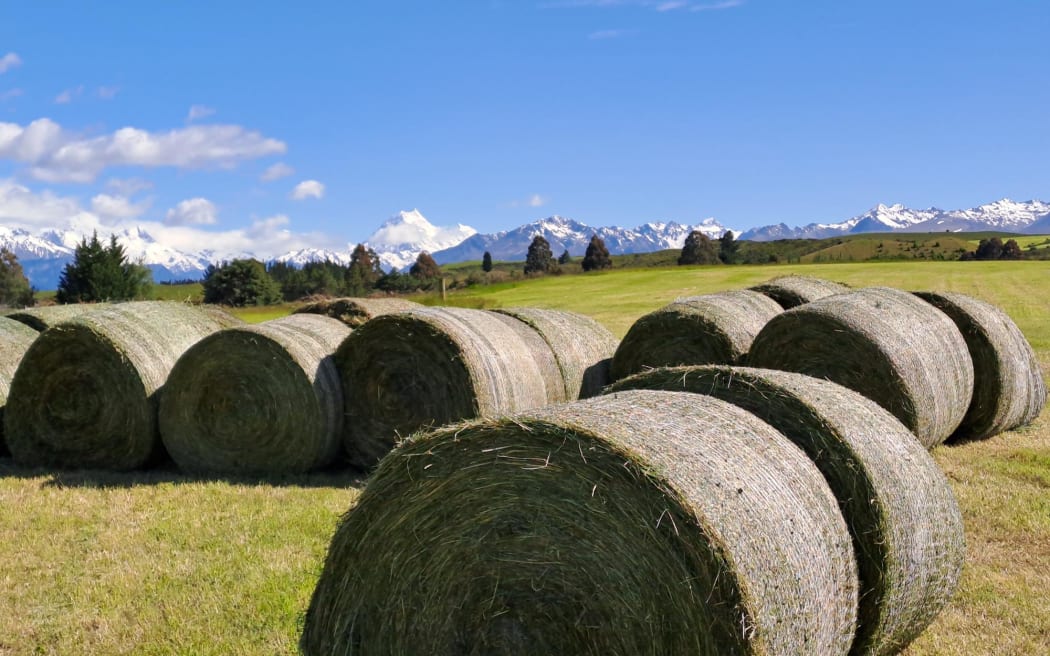
Baleage cut ahead of rain scheduled this weekend. Photo: RNZ/Susan Murray
All the predictions of El Nino so far seem to be the opposite in Canterbury with cool damp conditions and the odd warm day in between. When we checked in with a farmer this week, their log fire was going. Grass growth is okay but there is not a huge surplus about. Our contact was interested to find the farm accounts from 1986 during the week - lamb was $2 per kg and wool $4.40.
Otago had a bout of welcome rain last week. Parts of the region are getting rather dry. It's to be expected, although a little bit more rain to keep things going would be appreciated. Farmers are busy marking lambs and bulls are going out to the cows.
November provided a mixed bag for Southland. Nice sunshine and the right amount of rain has left the region in a good place as it heads into summer. Grass is certainly growing, crops are coming out of the ground quickly and stock is happy. Lots of baleage is being made, although people are becoming nervous about the expected dry.

